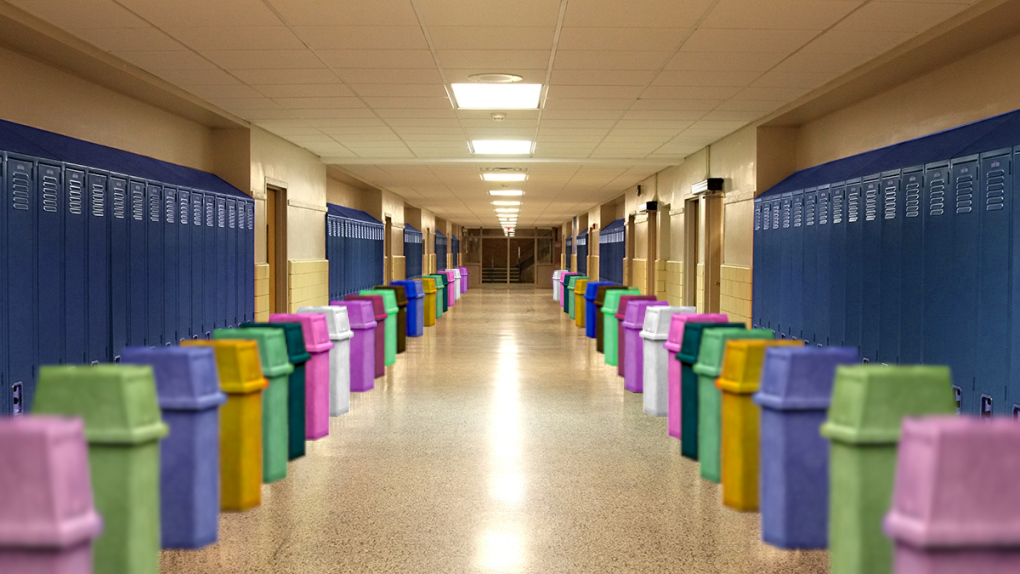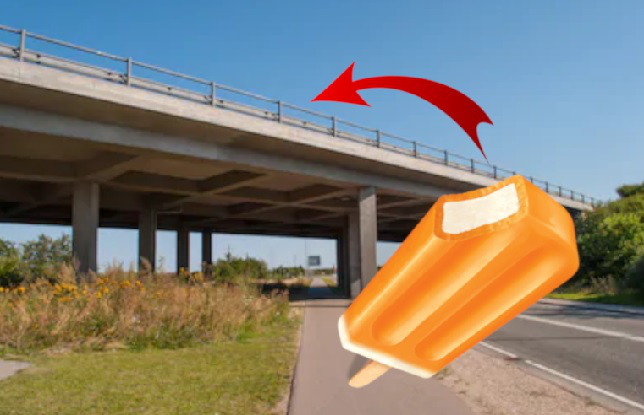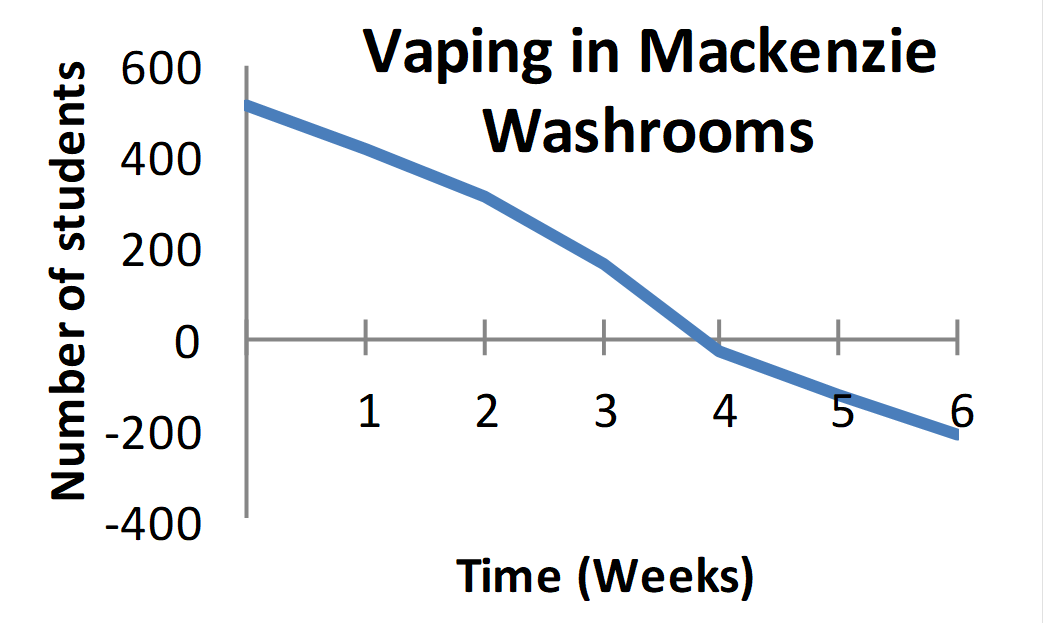February 2020 Issue
[ View as PDF ]Table of Contents
- Students adopt alternative optimised study schedule
- Leadership struggle causes the collapse of "Club President's Club"
- New trash system of 2.6 million bins to simplify Mackenzie's three bin policy
- Mackenzie alumni's creative bridge design nominated for environmental innovation awards
- Vaping population at Mackenzie drops below 0%
Students adopt alternative optimised study schedule
Mackenzie’s library was a place for students to have a quiet place to study and do work. But since July, the library’s state of renovation has cost students their primary study spot. Scrambling for alternatives, a select group of Mackenzie students with a stroke of genius has found an excellent solution to their academic concerns. Mackenzie students, being the brightest of bright and the best of the best, have found that not studying at all is the perfect alternative.
A normal day for grade 12 students would look like this: go to school, attend classes, study during lunch, then study again during their spare if they have one. But with this new way of life, high school students are able to engage in some of their favourite activities such as procrastinating, wasting time, but most importantly, sleeping.
These students have reported impressive improvements in different areas of their lives. Benefits have consisted of an extra hour of sleep, up to two extra hours of free time and even five hours of family time every day.
“I now get a whopping three hours of sleep instead of my usual two,” said one student.
“Class averages have dropped by about five percent,” complained one of the teachers. Students rebutted, calling it “a fair trade-off.”
It is expected that students will not be willing to go back to their old ways.
“Hmmmmm, I like this schedule better,” said an anonymous student.
Leadership struggle causes the collapse of "Club President's Club"
Every fall, enterprising students vie to create new and exciting clubs to draw members and pad their resumes. But what about students who lack the creativity and drive to create their own club, but still need something to add to their university supplementary applications? This fall two Mackenzie students came up with a creative solution to this problem. They proposed a brand new and innovative way of running a club. A way that would shock the administration to the core and completely redefine the meaning of what a club at Mackenzie is meant to be.
The “Club President’s Club” opened its doors to future executives in September and quickly grew to a whopping 45 executives and 0 members. The club valued inclusivity and equality above all else; anyone who attended a meeting would automatically become one of the club’s many presidents. The club presidents would assemble once a week to plan meetings and discuss ways of increasing membership.
For a while things went well, or at least as well as possible for a club comprised entirely of bickering execs. The real trouble started when the club presidents were informed by the administration that a club could not, in fact, have more presidents than members and that the club would be shut down if half of the presidents did not step down to assume a lower rank.
For eleven days and twelve nights (incidentally setting a new Mackenzie record for longest time gone without sleep) the executive council deliberated on who would be allowed to keep their title. At the end of the megasecond, the directorate decided to put it to vote. Each president would vote for whomever they thought should keep their role. Somewhat unsurprisingly, it resulted in a forty-five way split.
Faced with no other options, the committee was forced to disband, but speculation as to what really happened is rampant. Some say that the club still exists, but meets in secret. Others claim that it has simply changed its name to escape detection, yet others insist that the club never existed in the first place.
The “Mackenzie Club President’s Club Truther Club” (or MCPCTC) has recently taken to demanding the school for answers. As to what they did before the collapse of CPC is yet another mystery. Incidentally, MCPCTC has announced that they are still looking for forty-six people to fill empty roles as club vice-presidents.
New trash system of 2.6 million bins to simplify Mackenzie's three bin policy

Starting in March of 2020, the science hallway of Mackenzie will be reconstructed in order to implement a revolutionary waste-sorting strategy. Instead of designated black bins, blue bins, and green bins, all waste in the school will be sorted alphabetically and by colour. According to the official Mackenzie trash council, this new system will make it easier for students to properly sort their waste.
“Sorting trash only by garbage, recycling, and compost has proven to be a very demanding mental challenge for students,” said one of Mackenzie’s expert trash analysts. “Especially since high school can be quite stressful for students, we don’t want to overwhelm them. I believe that this new system will not only help students sort their waste, but also help with their mental health. After all, not everybody can properly sort their waste—it’s just too difficult sometimes.”
There will be 26 sections of bins, one for each letter of the alphabet, and each section will contain 100,000 bins to correspond to a set of 100,000 different colours. Individual bins will be labelled with a colour, represented by a hexadecimal code. As of now, the school has finalized orders to create a total of 2,600,000 bins for the new system. The funding for this investment was obtained through lasagna sales from the cafeteria.
A survey conducted last month in anticipation of this new system showed that approximately 92% of students preferred to have hex code labels for waste sorting instead of the current posters listing what trash goes where.
The science hallway of the building will be closed off for a week to prepare for the implementation of the new system. All the new waste bins will be located in this hallway, which, according to the Mackenzie trash council, “is necessary for an efficient, centralized trash system”. Once the new system is complete, the amount of improperly sorted trash at Mackenzie is expected to decrease by at least 48% and the colour variety in Mackenzie’s visual arts projects to increase by 39%.
Mackenzie alumni's creative bridge design nominated for environmental innovation awards

A new Toronto bridge has been diverting traffic off of the busy Gardiner Expressway year. Reports confirmed Friday that the bridge, affectionately named Bridgey McBridgeface, was made entirely out of popsicle sticks and wood glue. Mackenzie graduate and lead engineer, Warren Trust, was nominated for the Suzuki Distinction Award, as well as two engineering awards for environmental innovation.
“I just thought that this was how bridges were made,” said Trust at the press conference.
The science department at Mackenzie is very proud of Trust’s achievement. “This is exactly why the grade 11 bridge project exists. It’s a fountain of knowledge that is applicable, practical, and real-world,” added a Mackenzie teacher.
McBridgeface’s consideration for the environmental awards is due to its materials being fully biodegradable and made of recycled materials.
“The bridge gives off a pleasant smell, sort of like orange creamsicles. I experience this aroma every day as I drive over it, reminding me of summer,” said one commuter.
Unfortunately, Bridgey McBridgeface will not last long. One of its legs has already started to biodegrade and the bridge will turn into a rich bed of compost by June.
Vaping population at Mackenzie drops below 0%
The dramatic rise of teenagers who vape in school bathrooms has created a new problem for administration. They took notice, and responded by implementing a highly effective strategy: new signs posted on all bathroom doors that say “NO SMOKING, NO VAPING (e-cigarettes)”. These small, thin plastic boards have had a wide and impactful effect on the Mackenzie community.
A survey conducted by The Flounder showed that the previous 34% of the school that vaped, has dramatically decreased by 48% over the last six weeks. “We didn’t think it possible for the number to drop below zero, but that was before we took into account the amount of students that have been deterred from vaping in the future,” said the Mackenzie Vaping Officer.

The figures were calculated by a convoluted process that involved multiplying the total number of vapers by the latitude of the school, then dividing the product by the total number of students, multiplied by the number of letters in the school’s name. “Future trends, we decided, should be considered negative,” said the Official Mackenzie Statistic Fabricator.
The capitalized text and strong wording on the sign, combined with its clean and minimalistic layout, has seemingly done the trick. An anonymous student commented: “At first, I didn’t think the signs would achieve anything. But after a couple of days, I really felt impacted by them. They changed the way I see the whole issue.”
Last year, a North Vancouver high school had to shut down almost all of its student bathrooms in an attempt to prevent kids from vaping at school. Mackenzie thankfully realizes the importance of bathroom privileges, and has created a very unique solution to this emerging problem, one that doesn’t involve students holding in their bladder for the day, and gives the hall monitors a break from barging into bathrooms.

